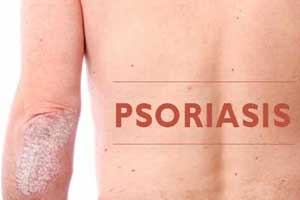- Home
- Editorial
- News
- Practice Guidelines
- Anesthesiology Guidelines
- Cancer Guidelines
- Cardiac Sciences Guidelines
- Critical Care Guidelines
- Dentistry Guidelines
- Dermatology Guidelines
- Diabetes and Endo Guidelines
- Diagnostics Guidelines
- ENT Guidelines
- Featured Practice Guidelines
- Gastroenterology Guidelines
- Geriatrics Guidelines
- Medicine Guidelines
- Nephrology Guidelines
- Neurosciences Guidelines
- Obs and Gynae Guidelines
- Ophthalmology Guidelines
- Orthopaedics Guidelines
- Paediatrics Guidelines
- Psychiatry Guidelines
- Pulmonology Guidelines
- Radiology Guidelines
- Surgery Guidelines
- Urology Guidelines
Treatment with Infliximab increases infection risk in Psoriasis patients

Treatment with infliximab therapy in psoriasis patients is associated with an increased risk of serious infections compared to those treated with non-biologic disease-modifying antirheumatic drugs (DMARDs) or methotrexate, reveals a prospective study published in the journal British Journal of Dermatology.
Zenas Yiu, The University of Manchester, Manchester, UK, and colleagues conducted the study to compare the risk of serious infections associated with infliximab in patients with chronic plaque psoriasis against a cohort on non‐biologic systemic therapies.
The investigators grouped several non-biologic systemic therapies, including methotrexate, cyclosporin, acitretin, fumaric acid esters, psoralen-ultraviolet A, or hydroxycarbamide and analyzed rates of serious infections associated with death, hospitalization, or the need for intravenous antimicrobial therapy. Propensity‐score inverse probability treatment weights were used to adjust for potential confounding from a priori identified covariates. Cox proportional hazards models were calculated to obtain hazard ratios.
Also Read: Adherence to mediterranean diet decreases severity of psoriasis
Key Findings:
- Among 3,843 psoriasis patients accrued in the study up to October 2016, the serious infection rates were significantly higher in the infliximab cohort (47.8 per 1,000 person-years) compared with the non-biologic systemic cohort (14.2 per 1,000 person-years).
- the adjusted hazard ratio was 1.95 (95% CI 1.01-3.75 versus DMARDs) and was also higher when compared with methotrexate only (adjusted HR 2.96, 95% CI 1.58-5.57).
- the risk of serious infection was highest in the first 6 months of therapy (adjusted HR 3.49, 95% CI 1.14-10.70).
"Infliximab is associated with an increased risk of serious infections compared with non‐biologic systemic therapies in patients with psoriasis," concluded the authors.
For more information log on to https://doi.org/10.1111/bjd.17036

Disclaimer: This site is primarily intended for healthcare professionals. Any content/information on this website does not replace the advice of medical and/or health professionals and should not be construed as medical/diagnostic advice/endorsement or prescription. Use of this site is subject to our terms of use, privacy policy, advertisement policy. © 2020 Minerva Medical Treatment Pvt Ltd